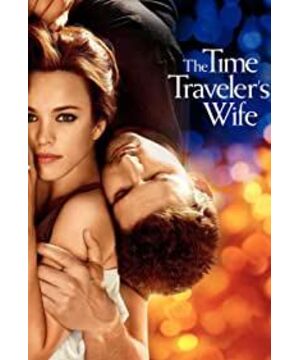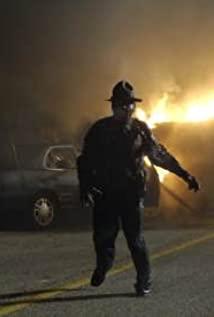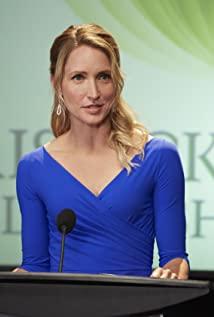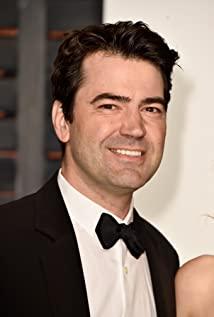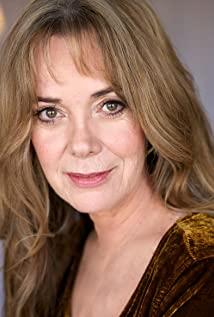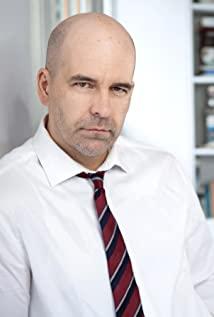Yes, time is such a thing, whether it is reversed or dislocated, it has an amazingly similar and powerful power, which can bring all fate, all no choice, and all washed away. people and those left behind.
In the book, Henry said: "My whole life is a long acquaintance." For a person who never knows when he will be in the next moment, "deja vu" may bring nothing but helplessness. resignedly. He can go back to the past again and again, but he can't change what has happened. He can also meet the future, but he is also powerless. For example, Henry and Claire, who just moved into a new home in the movie, were still looking forward to their new life when they met the dying Henry who was shot from the future. This is so cruel. Even death became part of deja vu.
Henry constantly encounters the past, meets the future, and constantly misses the present. He is always involuntarily appearing in any possible time and space, or smashing other people's car windows, or stealing anywhere, looking for anything that can be broken. No choice.
But Claire's appearance is like a rainbow in a gloomy sky, bringing something different to Henry's embarrassed journey through life. He began to have a clear destination. He clearly knew that on that grassland, there would be clothes prepared for him, and there would be a little girl waiting for him and his story. He also has a clear purpose, which is to make her fall in love with him. Claire made him believe that he can have a family full of love and warmth just like ordinary people.
But what remains at the center of this story is Claire, who keeps being left behind. The first time she met Henry at the age of 6, her life was waiting, waiting for the next encounter. As long as she can meet Henry from any time and space, she will feel happy. Weddings are like this, children are like this. When Henry, who had been ligated, said that he had just gone to Claire when she was 18, Claire finally broke out, because to some extent, her inability to choose was indeed caused by Henry deliberately. Every time she was left behind, she was left with a familiar empty and cold home, empty and cold clothes, and an empty and cold Christmas alone. Even, she almost lost the chance to be a mother.
There is no doubt that Claire is endearing, and her beauty and stoicism, her grief and helplessness at times, and her fear or calmness in the face of death and parting, all feel real to me. She is the true expression of womanhood, as a wife and as a mother. Of course what I was more eager to see didn't, and I think that's why the love in the movie seems so rushed. In fact, there is a lot of love that Henry germinated with Claire when he was a child, pure and fatal love. In the book, every time they talked on the grass can see the development of Claire's feelings, more and more relentless in the slow but powerful flow of time. The sun-drenched grass in the movie is as delicate as an oil painting but not natural enough. Little Claire is smart but lacks the naivety that a child should have. After all, it still lacks the charm of a book.
However, even if it is an extraordinary lover and family, the core of family affection under the soft sci-fi plot can still be hit with a single blow. Henry met his three-year-old mother in the subway. He looked at her mother's smile and said, "Your son must love you very much." I knew that this was still a tender story. And later, when Alba was on the street, watching her parents arguing and passing by her side, there was only joy on her face at that moment. It seemed that nothing made her happier than seeing her young parents together.
In the novel, they met for the last time when Claire was eighty, and Henry told Claire this before and told her to wait patiently. Undoubtedly, this is to make people cry, but it is too cruel. And at the end of the film, when Claire ran away from the grass, when they finally embraced again, when Henry said "I don't want you to spend your life waiting for me", I suddenly thought of "Up" In the sentence, "Thank you for the good life you gave me, now please start your own adventure."
But what exactly is a good life? You and I are both people walking on different time trajectories. Fortunately, we are all normal, there is no reverse, and there is no confusion, but we are also the same, with these unchangeable and at a loss. I always remember the beginning of the movie, Henry travels in a time and space that does not belong to him, wearing clothes that he struggled to find, walking on unfamiliar streets, and returning to the library to put on clothes indifferently, this series of slow and quiet shots. Even if he has adapted and handled it calmly, it is still difficult to hide the loneliness on his face. I can still remember that on the wedding night, in the face of Henry's departure again, Claire just put the ring he left back on her hand. This has made me feel rare. Walking and waiting is the state of each of us, and it is something that no one can afford except ourselves. In the vast sea of people, we meet similar people, do similar things, recall our past self, and draw our own blueprint, but we can't do anything except keep walking. Maybe this movie is not moving enough or poetic enough, but at least it has to admit that it describes our powerlessness in the face of time.
Meeting and parting, colliding with sparks and then extinguishing, life is born and death comes, there is so much that can influence us. Life is not free, but life can be full. Because many beautiful pasts have been confirmed by these unfreedoms, they have radiated abnormal brilliance, and we can only hope and cherish them.
View more about The Time Traveler's Wife reviews


